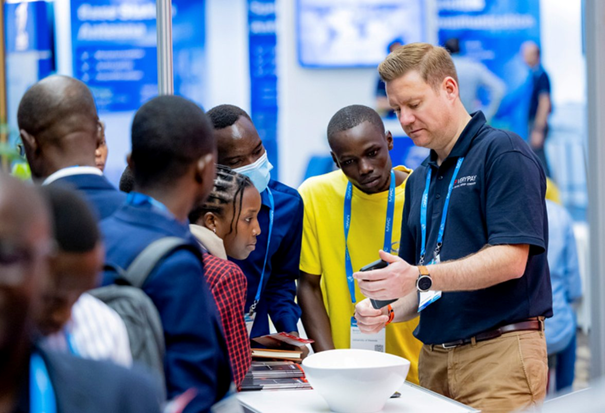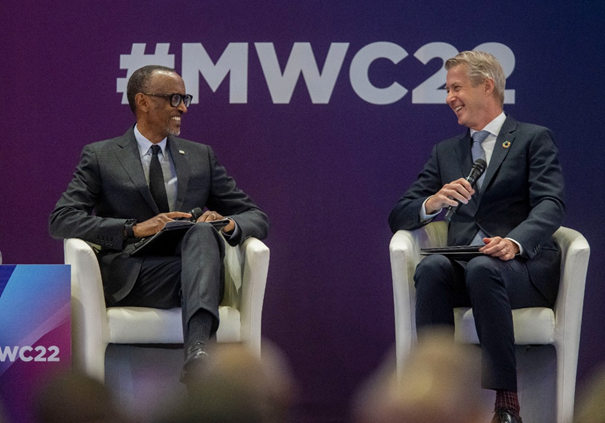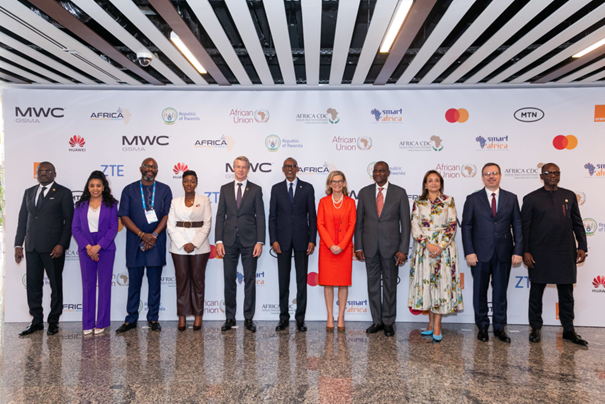
“Today, Africa has the fastest growing mobile penetration rate in the world. But we still have a long way to go. However, we already have the means to solve the problems we face today. We must continue to prioritize digital skills and literacy. Globally, we also see strong momentum towards Africa’s digital transformation.” This is how Paul Kagame, the Rwandan President, painted the digital challenges. He was speaking at the MWC Kigali 2023 held at the Kigali Convention Center in Rwanda. An international event that saw the participation of representatives from government, business, emerging technologies and much more. A diversity which says a lot about the issues of the day, as Mats Granryd points out. According to the GSMA Director General, the mobile industry has seen remarkable growth across sub-Saharan Africa and now reaches nearly 490 million unique subscribers. But he says, “only one in four people in the region subscribe to mobile Internet. MWC Kigali provides a forum for policy makers and connectivity leaders to come together and discuss ways to accelerate Africa's digital transformation, close the usage gap and ultimately, to ensure that all residents of the region benefit,” he stressed. So, from the investment gap to bridging the digital divide and mobile phone affordability, everything is on the table.
Innovation in cooperation

In a context where the challenges are almost the same for the countries, decision-makers have deemed it necessary to come together for greater impact. Thus, the CEOs of six of Africa's largest mobile network operators gathered at MWC Kigali to examine the opportunities and challenges linked to deeper partnerships with African governments to promote digital inclusion and the development of mobile infrastructure across the continent. With the support of President Paul Kagame, they agreed to “collaborate with the transformation plans of African nation states, placing greater emphasis on four priority areas in which governments, working in partnership with the mobile sector, have the opportunity to foster digital inclusion, economic growth and environmental transformation. This includes fostering inclusive connectivity through budgetary and other policy reforms, closing the investment gap for building broadband infrastructure, ensuring environmental impact, commitment to strengthening the mobile industry which currently contributes $170 billion (8.1%) to the sub-Saharan region's GDP and is committed to spending an additional $75 billion, which will bring in $210 billion to the GDP of the sub-Saharan region. Sub-Saharan Africa by 2030. The recipe is clear: “Achieving a connected Africa requires a real partnership”.
70 billion dollars invested in ten years

If Africa still has a way to go, it is not for lack of investment. Indeed, according to a document presented at Mwc Kigali, during the first 10 years of Agenda 2063 (2013-2023), mobile operators in Africa have invested more than 70 billion US dollars in the construction of mobile infrastructure, allowing nearly 85% of the African population to access high-speed mobile connectivity (compared to 95% global average). But the challenge remains enormous. For good reason, more than 680 million people, or three out of five people (60%), live in areas covered by a mobile broadband network in Africa but are not subscribed to mobile broadband services.
Rwanda going all-in on 5G
In its desire to take advantage of digital technology, the Rwandan government is sparing no effort to establish the appropriate framework. Thus, with the collaboration of SoftBank Corp, it was successfully carried out SoftBank's proprietary 5G communications payload into the stratosphere installed on a high-altitude unmanned aerial vehicle, powered by solar energy. “The demonstration, conducted for HAPS research purposes in Rwandan airspace by SoftBank and the Government of Rwanda, marked the world's first publicly announced delivery of 5G connectivity from a HAPS drone in the stratosphere” , indicates a press release.
For Paula Ingabire, Minister of ICT and Innovation of the Republic of Rwanda, the test represents an important step towards bridging the digital divide and strengthening digital inclusion through innovative solutions. “This shows our commitment to making Rwanda a premier global destination for pioneering and visionary individuals from around the world, where they can leverage our supportive policies and regulatory flexibility to explore cutting-edge innovations that address development challenges” , he indicated.
Thus, the two partners intend to rely on the results of this successful demonstration to study potential use cases of HAPS and its commercial implementation in Rwanda and other regions of Africa.




